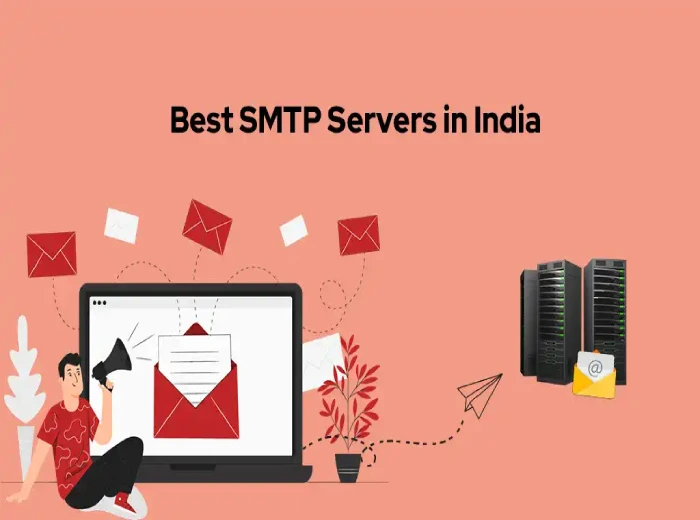Table of Contents
ToggleIntroduction
Explanation of the significance of SMTP Server for Bulk Email Campaigns
SMTP Server for Bulk Email has become an integral part of modern marketing strategies, allowing businesses and organizations to reach a large audience quickly and efficiently. At the heart of these campaigns lie SMTP servers (Simple Mail Transfer Protocol). SMTP servers play a crucial role in facilitating the smooth transmission of emails, ensuring they reach their intended recipients and avoiding potential deliverability issues.
Importance of choosing the right SMTP server for successful email marketing
Selecting the right SMTP server is a critical decision that directly impacts the effectiveness of your email marketing efforts. A well-chosen SMTP server can significantly enhance your email deliverability rates, reputation, and overall campaign success. On the other hand, using an inadequate or poorly managed SMTP server may lead to email delivery failures, spam folder placements, and a tarnished sender reputation.
Overview of the topics covered in the blog
In this blog, we will delve into the world of SMTP servers for bulk email campaigns. We’ll explore the various factors to consider when choosing an SMTP server, the significance of email deliverability and sender reputation, and the different types of SMTP servers available. Additionally, we’ll provide valuable insights through case studies of successful email campaigns with different Email Marketing Services in India configurations. Lastly, we’ll offer tips for setting up, configuring, monitoring, and optimizing your chosen SMTP server to ensure the best possible results for your email marketing efforts.
Understanding the Role of SMTP Server for Bulk Email
Explanation of SMTP (Simple Mail Transfer Protocol) and its function
SMTP, a fundamental internet protocol, acts as the backbone for sending and receiving emails. It governs the communication between email clients and servers, ensuring the successful transfer of emails from the sender’s system to the recipient’s mailbox.
How SMTP servers facilitate the sending and receiving of emails
SMTP servers act as intermediaries that handle the process of relaying emails from the sender to the recipient’s email server. They follow a set of rules and protocols to ensure that emails are properly authenticated, transmitted securely, and delivered to the appropriate recipients.
Differentiating between shared and dedicated SMTP servers
Shared SMTP servers are commonly provided by web hosting services and are shared among multiple users, while dedicated SMTP servers are exclusively allocated to a single user. Understanding the differences between these two options is crucial when choosing an SMTP server that aligns with your email marketing needs.
Factors to Consider When Choosing an SMTP Server for Bulk Email
Volume and Frequency of Emails
Assessing the scale of your bulk email campaigns
Before selecting an SMTP server, carefully evaluate the volume of emails you plan to send regularly. Different SMTP servers have varying capacity limits, and exceeding these limits could result in delivery delays or rejections.
Determining the number of emails you plan to send regularly
Understand your email marketing strategy and the frequency of your campaigns. Some SMTP servers may offer flexible pricing based on the number of emails sent, making it essential to choose a plan that suits your needs.
Deliverability and Reputation
Importance of a good sender reputation
Your sender reputation directly affects your email deliverability. ISPs and email providers closely monitor sender behavior to ensure their users receive relevant and non-spam emails.
How the reputation of your SMTP server affects email deliverability
The reputation of the SMTP server you use can influence how ISPs and email filters treat your emails. A reputable SMTP server helps maintain high deliverability rates and keeps your emails out of the spam folder.
Scalability and Performance
Considering future growth and scalability requirements
As your email marketing campaigns expand, you need an SMTP server that can scale along with your needs. Choosing a scalable solution prevents the need for frequent server migrations or disruptions in your campaigns.
Evaluating the performance capabilities of the SMTP server
A high-performance SMTP server ensures that your emails are sent promptly and reliably, reducing the chances of delayed or lost emails.
Security Features
Understanding the importance of email security
Email security is paramount to safeguard your data and your recipients’ information. Assess the security measures implemented by the SMTP server to protect against potential threats and attacks.
Reviewing the security measures provided by the SMTP server
Look for features such as spam filtering, virus scanning, and encrypted transmission to enhance the security of your email communications.
SMTP Authentication and Encryption
Explaining authentication methods (e.g., SPF, DKIM, DMARC)
SMTP authentication protocols like SPF (Sender Policy Framework), DKIM (DomainKeys Identified Mail), and DMARC (Domain-based Message Authentication, Reporting, and Conformance) help verify the authenticity of your emails, reducing the likelihood of spoofing and phishing attempts.
Ensuring secure email transmission through encryption (e.g., SSL, TLS)
Secure Socket Layer (SSL) and Transport Layer Security (TLS) encryption protocols protect sensitive data during email transmission, ensuring that your emails are transmitted securely.
Types of SMTP Servers Available
On-Premises SMTP Servers
Advantages and disadvantages of hosting your own SMTP server
Hosting an on-premises SMTP server provides greater control and customization but also requires dedicated resources, expertise, and maintenance.
Considerations for managing an on-premises SMTP server
Understand the technical requirements and potential challenges of managing an on-premises SMTP server, including security, maintenance, and compliance.
Third-Party SMTP Relay Services
Overview of third-party SMTP providers and their benefits
Third-party SMTP relay services offer a convenient and cost-effective solution for sending bulk emails without the need to manage hardware and infrastructure.
How to choose the right third-party SMTP relay service for your needs
Consider factors like deliverability rates, reputation management, support options, and pricing when selecting a third-party SMTP service provider.
Cloud-Based SMTP Services
Exploring cloud-based SMTP solutions
Cloud-based SMTP services leverage the power of cloud computing to provide scalable and reliable email delivery solutions.
Evaluating the benefits of using cloud-based SMTP services
Consider the advantages of flexibility, scalability, reliability, and ease of integration that cloud-based SMTP services offer for your bulk email campaigns.
Case Studies: Examples of Successful Email Campaigns with Different SMTP Servers
Case study 1: A company’s experience using an on-premises SMTP server
Learn from a real-life example of a company that successfully deployed and managed its on-premises SMTP server for its email marketing campaigns.
Case study 2: Leveraging a third-party SMTP relay service for email marketing
Explore how a business utilized a third-party SMTP relay service to streamline its email marketing operations and achieve improved deliverability rates.
Case study 3: Benefits and results of using a cloud-based SMTP service
Discover the advantages and outcomes of a company that migrated its bulk email campaigns to a cloud-based SMTP service for enhanced performance and scalability.
Tips for Setting Up and Configuring Your Chosen SMTP Server
Step-by-step guide to setting up the selected SMTP Server for Bulk Email
Follow a comprehensive guide on how to set up your chosen SMTP server, whether it’s an on-premises server, a third-party relay service, or a cloud-based solution.
Best practices for configuring the SMTP Server for Bulk Email
Implement best practices for optimizing your SMTP server’s configuration, including setting proper throttling limits, managing bounce handling, and maintaining a clean email list.
Ensuring compliance with email marketing regulations
Stay compliant with email marketing laws and regulations, including obtaining proper consent, providing unsubscribe options, and adhering to data protection laws.
Monitoring and Optimizing Your SMTP Server Performance
Monitoring email delivery rates and bounces
Learn how to monitor critical performance metrics, such as delivery rates, bounce rates, and email engagement, to assess the effectiveness of your email campaigns.
Analyzing SMTP server performance metrics
Understand the significance of various SMTP server performance metrics and how to interpret them to make data-driven decisions for optimizing your email campaigns.
Strategies for optimizing your SMTP Server for Bulk Email
Implement effective strategies to enhance your SMTP server’s performance, such as managing email queues, adjusting sending schedules, and maintaining a positive sender reputation.
Conclusion
Recap of the key points to consider when choosing an SMTP server
Summarize the essential factors to consider, including volume requirements, deliverability, scalability, security, and authentication, when making an informed decision about the best SMTP server for your bulk email campaigns.
Importance of selecting the right SMTP Server for Bulk Email Campaigns
Emphasize the impact of choosing the right SMTP server on email deliverability, sender reputation, and overall marketing success.
Encouragement to take action and implement the best SMTP solution for your needs.
Encourage readers to take action by implementing the insights gained from the blog to select and configure. The most suitable SMTP Server for Bulk Email campaigns, thereby maximizing their email marketing results.












